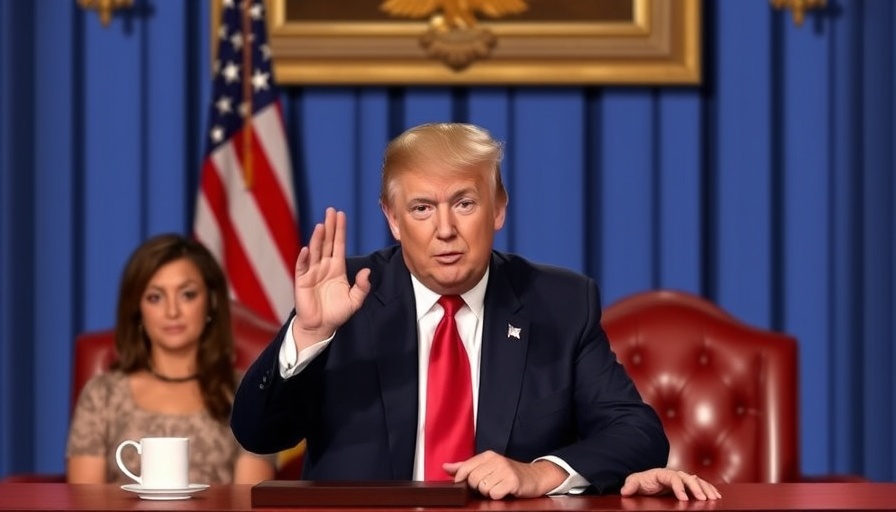
Understanding Performative Diplomacy in the Modern Political Landscape
In the current era of political theatrics, former President Donald Trump epitomizes a new style of diplomacy that prioritizes spectacle over substance, aptly termed 'performative diplomacy.' This method transforms political interactions into staged events that are designed primarily for social media consumption rather than genuine diplomacy. As emphasized by strategist Mark Textor, Trump's approach involves disruption followed by negotiation, positioning him uniquely in a world where political deals are now captured in vivid, shareable moments.
The Evolution of Political Interactions and Their Social Media Impact
Performative diplomacy has changed the way leaders communicate. Meetings that were once reserved for private discussions now morph into public spectacles designed to captivate audiences online. Trump’s infamous meeting with Ukraine’s President Volodymyr Zelensky, where he publicly attacked Zelensky as a tool for his political narrative, served as a potent example. While the substance of diplomatic negotiations was sidelined, the event became viral content on various social media platforms, demonstrating how political leaders must now navigate through a lens of public perception.
The Role of Image in Global Politics
Images are powerful. The depiction of Trump and Zelensky at a prominent event like the papal funeral highlights how much importance is placed on optics over dialogue. This encounter was praised as possibly the best photo-op of the century yet shed no light on the discussions that took place. Such instances raise questions about what truly constitutes effective diplomacy in today’s digital age. Is it enough for leaders to simply look good together in a photo, or must they engage in meaningful dialogue that is often lost in the cacophony of social media narratives?
Challenging Conventional Diplomacy: Counterarguments and Concerns
Critics argue that performative diplomacy undermines traditional diplomatic practices which rely on understanding, mutual respect, and prolonged negotiation. The fear is that surface-level interactions could lead to misunderstandings and superficial agreements that falter under pressure. Furthermore, critics assert that social media-driven tactics may harm international relations by encouraging leaders to prioritize a favorable image over genuine collaboration.
The Shift Towards Unilateralism in Foreign Policy
Trump’s administration was characterized by a noticeable shift towards unilateralism rather than collaboration. This reflexivity marked a departure from the previously established “rules-based order” of international relations. In this changing landscape, the implications for global diplomacy are profound, shifting the balance from multilateral agreement to interactions driven by individual personalities and media representation.
Looking Ahead: Predictions for Diplomacy in the Digital Age
As social media becomes increasingly intertwined with international relations, the future of diplomacy may resemble a series of highlight reels rather than substantive policy developments. Leaders who effectively leverage social media are likely to thrive, while those who do not engage with the new norms of public interaction may struggle to maintain relevance. This evolution presents an opportunity for communicators in the political field to adapt and refine their strategies.
Actionable Insights for Aspiring Political Communicators
Those looking to thrive in this era of performative diplomacy should focus on mastering social media dynamics. Emphasizing a brand voice that resonates on platforms like Twitter, Instagram, and TikTok can help politicians connect with constituents in ways that traditional methods cannot. Engage authentically while maintaining the essence of substantive diplomatic discussions, ensuring that visibility and credibility are intricately tied together.
The dynamics of diplomacy are changing, compelling political figures to adapt or risk obsolescence. As we reflect on Trump's performative approach, the call to action is clear: engage effectively and authentically in a world where the stakes of perception are higher than ever before. Book Your Brand Voice Interview Now!
 Add Row
Add Row  Add
Add 




Write A Comment